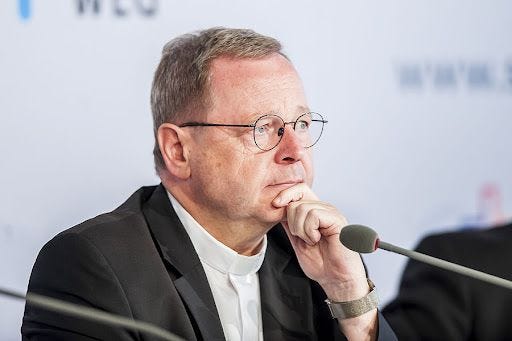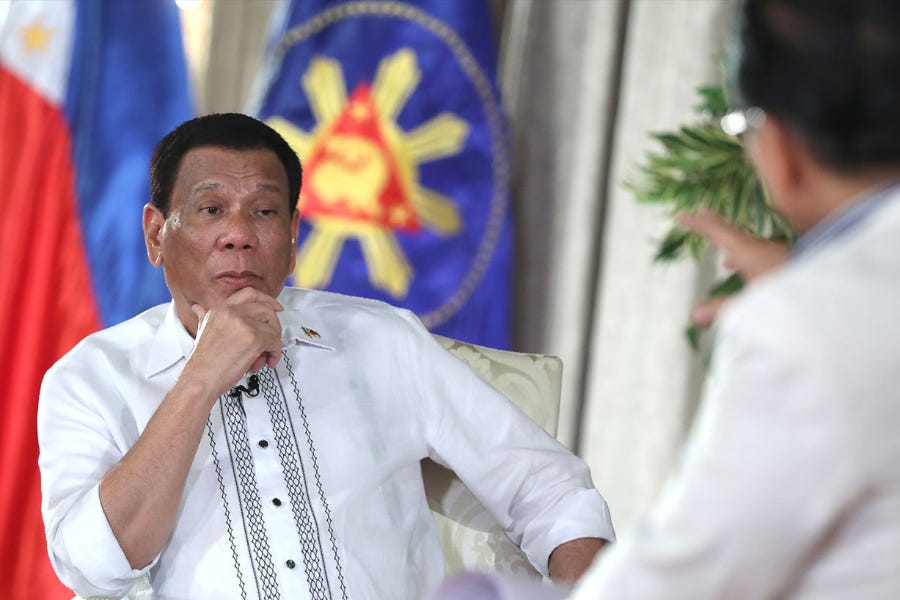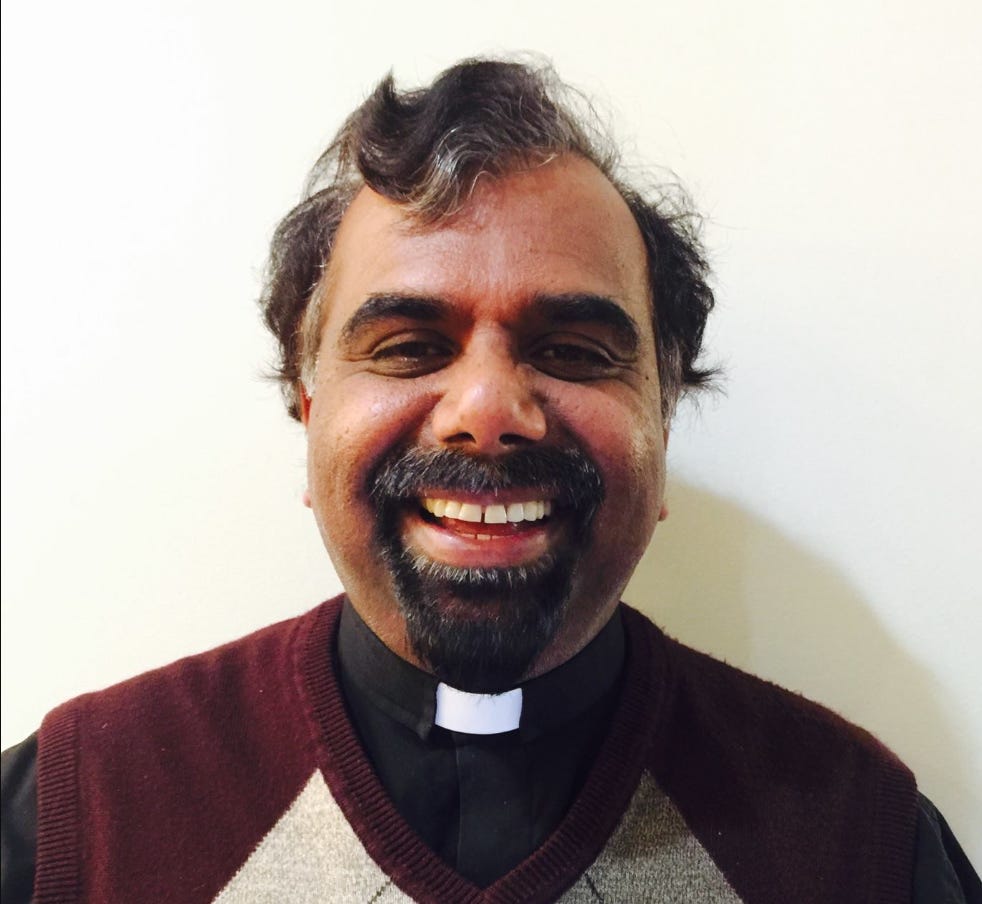
The chairman of Germany’s bishops’ conference said in an interview published Friday that he sees a possible “middle way” after the Vatican nixed a proposed permanent decision-making body of bishops and lay people.
Bishop Georg Bätzing told the Die Welt newspaper that while he thought the Vatican was wrong to block the creation of a “synodal council,” he believed there was a “fallback option.”
He said: “There is still a middle way. In Germany, we have had the so-called Joint Conference since the 1970s, in which the bishops’ conference and the Central Committee of German Catholics (ZdK) consult with each other, that is, lay people and bishops. This Joint Conference has been given certain tasks. So the fallback option is: we stay with this model and simply add important tasks that are feasible under Church law.”
📰
The Joint Conference has its origins in the Würzburg Synod, a forerunner of today’s controversial “synodal way,” held from 1971 to 1975. The Joint Conference’s members — 10 bishops and 10 lay people — meet twice a year to discuss tasks common to both the bishops’ conference and the Zdk, a powerful lay group spearheading the synodal way alongside the bishops.
The Joint Conference’s rules of procedure, which date to 1976, say that the body “discusses ecclesiastical tasks on a supra-diocesan level” and “recommends to the German bishops’ conference and to the Central Committee of German Catholics, depending on their competence, the implementation of appropriate measures.”
Explaining why an enhanced Joint Conference could be a fallback option, Bishop Bätzing said: “It is already the case that advisory bodies in the Church de facto take many important decisions, and we bishops only formally sign it off.”
“Think, for example, of the budget of a diocese or of the Association of the Dioceses of Germany (VDD): in terms of content, it is not we bishops who make these decisions, but committees made up of people with the appropriate expertise, clergy, and laity, women and men. Such participation can also be applied to other topics.”
The bishop of Limburg was speaking days after the publication of a letter from three Vatican cardinals explaining that the Church in Germany could not proceed with plans to create a permanent synodal council.
The proposal was approved at a synodal way meeting last September, at which participants voted to create a permanent body of lay people and bishops that would “take fundamental decisions of supra-diocesan significance on pastoral planning, future perspectives and budgetary issues of the Church that are not decided at the level of the dioceses.”
The Vatican letter, dated Jan. 16, was published in response to a Dec. 21 letter from the heads of the dioceses of Cologne, Eichstätt, Augsburg, Passau, and Regensburg, following the German bishops’ ad limina visit to Rome in November. The five Church leaders asked if they were obliged to take part in the “synodal committee” overseeing the creation of the synodal council.
The Vatican cardinals said that the bishops were not required to participate and that no Catholic body in Germany had the authority to establish a synodal council.
Among the fiercest critics of the proposed permanent body was the theologian Cardinal Walter Kasper.
In a statement published Jan. 26, the former Vatican ecumenical chief said: “Every bishop was conferred the pastoral office in his diocese at his episcopal ordination in the apostolic succession. He cannot subsequently renounce the exercise of this sacramentally conferred authority, in whole or in part, by self-commitment to a synodal council, without violating the responsibility conferred upon him personally.”
He added that resistance to Rome’s ruling on the synodal council, “or its cunning reinterpretation and circumvention,” would “inevitably lead to the brink of schism and thus plunge the People of God in Germany into an even deeper crisis.”
In his Die Welt interview, Bishop Bätzing lamented Pope Francis’ renewed criticism of the synodal way in an Associated Press interview on Jan. 24. He said he regretted that the pope had made the comments in an interview, rather than directly during the German bishops’ ad limina trip.
“I consider this way of perceiving Church leadership through interviews extremely questionable,” he commented.
Bishop Bätzing insisted that the synodal way would not lead to a split in the Church, “simply because no one wants that.”
He added that the pope was not calling for the synodal way itself to end.
“No, he has never said that, and he is not saying that this time either,” he said. “He makes a qualification — and I would like to talk to him about whether that was helpful — but there is no word of stop.”



